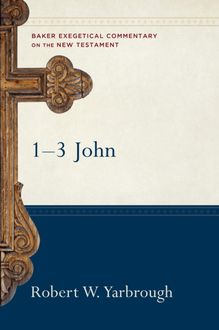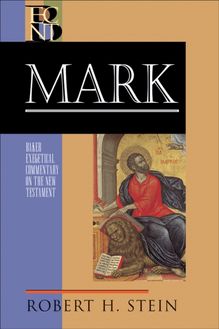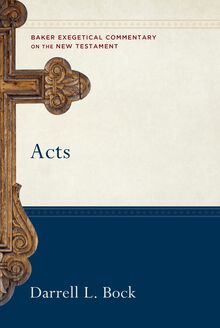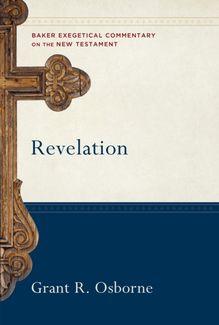-
 Univers
Univers
-
 Ebooks
Ebooks
-
 Livres audio
Livres audio
-
 Presse
Presse
-
 Podcasts
Podcasts
-
 BD
BD
-
 Documents
Documents
-
- Cours
- Révisions
- Ressources pédagogiques
- Sciences de l’éducation
- Manuels scolaires
- Langues
- Travaux de classe
- Annales de BEP
- Etudes supérieures
- Maternelle et primaire
- Fiches de lecture
- Orientation scolaire
- Méthodologie
- Corrigés de devoir
- Annales d’examens et concours
- Annales du bac
- Annales du brevet
- Rapports de stage
La lecture à portée de main
Vous pourrez modifier la taille du texte de cet ouvrage
Découvre YouScribe en t'inscrivant gratuitement
Je m'inscrisActs (Baker Exegetical Commentary on the New Testament) , livre ebook
Découvre YouScribe en t'inscrivant gratuitement
Je m'inscrisEn savoir plus
Vous pourrez modifier la taille du texte de cet ouvrage
En savoir plus

Description
Sujets
Informations
| Publié par | Baker Publishing Group |
| Date de parution | 01 octobre 2007 |
| Nombre de lectures | 0 |
| EAN13 | 9781441200266 |
| Langue | English |
| Poids de l'ouvrage | 4 Mo |
Informations légales : prix de location à la page 0,1680€. Cette information est donnée uniquement à titre indicatif conformément à la législation en vigueur.
Extrait
Series Page
BAKER EXEGETICAL COMMENTARY ON THE NEW TESTAMENT
ROBERT W. YARBROUGH and JOSHUA W. JIPP, EDITORS
Volumes now available:
Matthew David L. Turner
Mark Robert H. Stein
Luke Darrell L. Bock
Acts Darrell L. Bock
Romans, 2nd ed. Thomas R. Schreiner
1 Corinthians David E. Garland
2 Corinthians George H. Guthrie
Galatians Douglas J. Moo
Ephesians Frank Thielman
Philippians Moisés Silva
Colossians and Philemon G. K. Beale
1–2 Thessalonians Jeffrey A. D. Weima
James Dan G. McCartney
1 Peter Karen H. Jobes
1–3 John Robert W. Yarbrough
Jude and 2 Peter Gene L. Green
Revelation Grant R. Osborne
***
Darrell L. Bock (PhD, University of Aberdeen) is executive director for cultural engagement at the Hendricks Center at Dallas Theological Seminary in Dallas, Texas, where he also serves as senior research professor of New Testament studies. He is the author or editor of many books, including Jesus the God-Man , Jesus according to Scripture , Studying the Historical Jesus , and major commentaries on Luke and Acts.
©2007 by Darrell L. Bock
Published by Baker Academic a division of Baker Publishing Group P.O. Box 6287, Grand Rapids, MI 49516-6287 www.bakeracademic.com
Ebook edition created 2012
Ebook corrections 04.06.2018, 07.25.2019, 06.09.2021, 04.05.2023
All rights reserved. No part of this publication may be reproduced, stored in a retrieval system, or transmitted in any form or by any means—for example, electronic, photocopy, recording—without the prior written permission of the publisher. The only exception is brief quotations in printed reviews.
Library of Congress Cataloging-in-Publication Data is on file at the Library of Congress, Washington, DC.
ISBN 978-1-4412-0026-6
Baker Publishing Group publications use paper produced from sustainable forestry practices and post-consumer waste whenever possible.
To my colleagues at Dallas Theological Seminary, Talbot Theological Seminary, Tyndale House, Bengelhaus, and the universities of Aberdeen and Tübingen for their friendship, fellowship, encouragement, and instruction
And, most especially, to Sally Bock, whose life defines faithfulness
Contents
Cover
Half Title Page
Series Page
Title Page
Copyright Page
Dedication
Series Preface
Author’s Preface
Abbreviations
Transliteration
Map
Introduction to Acts
I. Introduction: Jesus Ascends to the Father and Gives a Mission (1:1–11)
A. Review of Book 1 to the Ascension (1:1–5)
B. The Ascension and Final Testament: A Promise for the Disciples Now and a Promise to Return (1:6–11)
II. The Early Church in Jerusalem (1:12–6:7)
A. Community Life: Replacing Judas by Depending on God and Reconstituting the Twelve (1:12–26)
B. Pentecost (2:1–41)
C. Summary: Community Life (2:42–47)
D. The Healing of the Lame Man and the Arrest of Peter and John (3:1–4:31)
E. Community Life and Problems (4:32–5:11)
F. Summary: Signs and Wonders (5:12–16)
G. More Persecution (5:17–42)
H. Community Life: The Appointment of the Seven to Help Hellenist Widows (6:1–6)
I. Summary of the Jerusalem Community (6:7)
III. Persecution in Jerusalem Moves the Message to Judea and Samaria as a New Witness Emerges (6:8–9:31)
A. The Arrest, Speech, and Martyrdom of Stephen (6:8–8:1a)
B. Saul the Persecutor and the Spread of the Word (8:1b–4)
C. Philip in Samaria and with a Eunuch from Ethiopia (8:5–40)
D. The Conversion and Early Reception of Saul (9:1–30)
E. Closing Summary (9:31)
IV. The Gospel to the Gentiles and More Persecution in Jerusalem (9:32–12:25)
A. Peter Performs Two Miracles at Lydda and Joppa (9:32–43)
B. Peter and Cornelius: The Gospel to the Gentiles (10:1–11:18)
C. The Church at Antioch: Barnabas, Saul, and Agabus (11:19–30)
D. Persecution in Jerusalem (12:1–23)
E. Summary (12:24–25)
V. The Mission from Antioch and the Full Incorporation of Gentiles (13:1–15:35)
A. The First Missionary Journey (13:1–14:28)
B. Consultation at Jerusalem (15:1–35)
VI. The Second and Third Missionary Journeys: Expansion to Greece and Consolidation amid Opposition (15:36–21:16)
A. The Second Missionary Journey (15:36–18:23)
B. The Third Missionary Journey, Ending in Jerusalem (18:24–21:16)
VII. The Arrest: The Message Is Defended and Reaches Rome (21:17–28:31)
A. In Jerusalem (21:17–23:35)
B. In Caesarea (24:1–26:32)
C. The Long Sea Journey to Rome (27:1–28:16)
D. Visitors in Rome: The Gospel Preached (28:17–31)
Works Cited
Index of Subjects
Index of Authors
Index of Greek Words
Index of Scripture and Other Ancient Writings
Notes
Back Cover
Series Preface
The chief concern of the Baker Exegetical Commentary on the New Testament (BECNT) is to provide, within the framework of informed evangelical thought, commentaries that blend scholarly depth with readability, exegetical detail with sensitivity to the whole, and attention to critical problems with theological awareness. We hope thereby to attract the interest of a fairly wide audience, from the scholar who is looking for a thoughtful and independent examination of the text to the motivated lay Christian who craves a solid but accessible exposition.
Nevertheless, a major purpose is to address the needs of pastors and others involved in the preaching and exposition of the Scriptures as the uniquely inspired word of God. This consideration affects directly the parameters of the series. For example, serious biblical expositors cannot afford to depend on a superficial treatment that avoids the difficult questions, but neither are they interested in encyclopedic commentaries that seek to cover every conceivable issue that may arise. Our aim therefore is to focus on problems that have a direct bearing on the meaning of the text (although selected technical details are treated in the additional notes).
Similarly, a special effort is made to avoid treating exegetical questions for their own sake, that is, in relative isolation from the thrust of the argument as a whole. This effort may involve (at the discretion of the individual contributors) abandoning the verse-by-verse approach in favor of an exposition that focuses on the paragraph as the main unit of thought. In all cases, however, the commentaries stress the development of the argument and explicitly relate each passage to what precedes and follows it so as to identify its function in context as clearly as possible.
We believe, moreover, that a responsible exegetical commentary must take fully into account the latest scholarly research, regardless of its source. The attempt to do this in the context of a conservative theological tradition presents certain challenges, and in the past the results have not always been commendable. In some cases, evangelicals appear to make use of critical scholarship not for the purpose of genuine interaction but only to dismiss it. In other cases, the interaction glides over into assimilation, theological distinctives are ignored or suppressed, and the end product cannot be differentiated from works that arise from a fundamentally different starting point.
The contributors to this series attempt to avoid these pitfalls. On one hand, they do not consider traditional opinions to be sacrosanct, and they are certainly committed to doing justice to the biblical text whether or not it supports such opinions. On the other hand, they will not quickly abandon a long-standing view, if there is persuasive evidence to support it, for the sake of fashionable theories. What is more important, the contributors share a belief in the trustworthiness and essential unity of Scripture. They also consider that the historic formulations of Christian doctrine, such as the ecumenical creeds and many of the documents originating in the sixteenth-century Reformation, arose from a legitimate reading of Scripture, thus providing a proper framework for its further interpretation. No doubt, the use of such a starting point sometimes results in the imposition of a foreign construct on the text, but we deny that it must necessarily do so or that the writers who claim to approach the text without prejudices are invulnerable to the same danger.
Accordingly, we do not consider theological assumptions—from which, in any case, no commentator is free—to be obstacles to biblical interpretation. On the contrary, an exegete who hopes to understand the apostle Paul in a theological vacuum might just as easily try to interpret Aristotle without regard for the philosophical framework of his whole work or without having recourse to the subsequent philosophical categories that make possible a meaningful contextualization of his thought. It must be emphasized, however, that the contributors to the present series come from a variety of theological traditions and that they do not all have identical views with regard to the proper implementation of these general principles. In the end, all that really matters is whether the series succeeds in representing the original text accurately, clearly, and meaningfully to the contemporary reader.
Shading has been used to assist the reader in locating the introductory comments for each section. Textual variants in the Greek text are signaled in the author’s translation by means of half-brackets around the relevant word or phrase (e.g., ⌜ Gerasenes ⌝ ), thereby alerting the reader to turn to the additional notes at the end of each exegetical unit for a discussion of the textual problem. The documentation uses the author-date method, in which the basic reference consists of author’s surname + year + page number(s): Fitzmyer 1992: 58. The only exceptions to this system are well-known reference works (e.g., BDAG, LSJ, TDNT ). Full publication data and a complete set of indexes can be found at the end of the volume.
Robert Yarbrough
Robert H. Stein
Author’s Preface
This work represents the completion of a commitment made in the early 1980s to produce a commentary on both Luke and Acts. There were times when
-
 Univers
Univers
-
 Ebooks
Ebooks
-
 Livres audio
Livres audio
-
 Presse
Presse
-
 Podcasts
Podcasts
-
 BD
BD
-
 Documents
Documents
-
Jeunesse
-
Littérature
-
Ressources professionnelles
-
Santé et bien-être
-
Savoirs
-
Education
-
Loisirs et hobbies
-
Art, musique et cinéma
-
Actualité et débat de société
-
Jeunesse
-
Littérature
-
Ressources professionnelles
-
Santé et bien-être
-
Savoirs
-
Education
-
Loisirs et hobbies
-
Art, musique et cinéma
-
Actualité et débat de société
-
Actualités
-
Lifestyle
-
Presse jeunesse
-
Presse professionnelle
-
Pratique
-
Presse sportive
-
Presse internationale
-
Culture & Médias
-
Action et Aventures
-
Science-fiction et Fantasy
-
Société
-
Jeunesse
-
Littérature
-
Ressources professionnelles
-
Santé et bien-être
-
Savoirs
-
Education
-
Loisirs et hobbies
-
Art, musique et cinéma
-
Actualité et débat de société
- Cours
- Révisions
- Ressources pédagogiques
- Sciences de l’éducation
- Manuels scolaires
- Langues
- Travaux de classe
- Annales de BEP
- Etudes supérieures
- Maternelle et primaire
- Fiches de lecture
- Orientation scolaire
- Méthodologie
- Corrigés de devoir
- Annales d’examens et concours
- Annales du bac
- Annales du brevet
- Rapports de stage




















